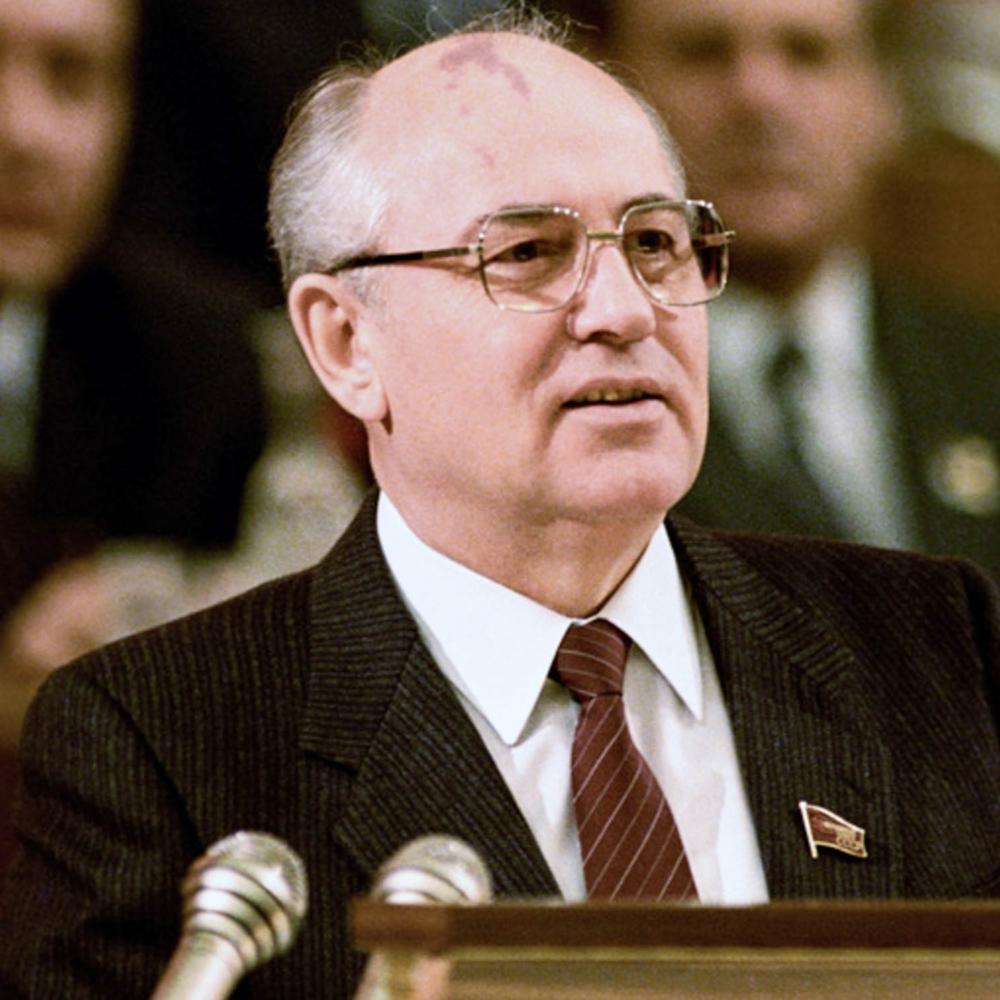A New Policy for Europe and the World
«We are all players aboard the Earth ship, and we must not allow it to be destroyed. There will be no second Noah’s Ark,» said Mikhail Gorbachev in his book ‹Perestroika›.
The subtitle of the book was promising: ‹The Second Russian Revolution. A New Policy for Europe and the World› For the generation that witnessed the deeds immediately preceding Gorbachev’s words, this bordered on a miracle: the Cold War with its merciless arms race, which had kept Europe in fear and terror for years, was finished. After that, the path was suddenly clear for a possible reunification of Germany and the reorganization of Europe. The previous Soviet state disintegrated – you could suddenly travel to Russia without any problems, and vice versa. You met enthusiastic tourists from Russia all over Europe.
On the occasion of his death on August 30, 2022, the German weekly magazine ‹Die Zeit› called Gorbachev «an exceptional phenomenon of history.» Elena Chizhova, a writer in Saint Petersburg, wrote a feature for the ‹Neue Zürcher Zeitung› with the headline: ‹And from the East came a man› (‹NZZ›, 9/2/2022). In it, she reports: «Of course, the majority of our citizens had remained Soviet. But my own world changed at cosmic speed. In 1989, I crossed the border of the Soviet Union for the first time. On the train from Leningrad to Helsinki, I had a feeling that was difficult to describe in words. As if crossing the stylized line of the Iron Curtain, I was not only moving in space but returning to a tremendously large world after many years of hopeless exile. I think it was in those years that Gorbachev also discovered the big world and the Western people for himself. I remember his expression when he got out of the car and walked towards Margaret Thatcher: with a slightly biased but at the same time sincere smile. At that moment, ‹socialism with a human face› came to mind – a Soviet mythologem that Gorbachev often used in his speeches. At that moment, he was the embodiment of this expression. No wonder Margaret Thatcher trusted him: for the first time in 70 years, ‹from the East› no abstract statesman had come, lifeless and impenetrable like anything Soviet, but a living man.» When Gorbachev was laid out in the House of Trade Unions in Moscow, thousands of his fellow citizens said goodbye to him in a long queue – including an astonishing number of young people. (Markus Ackeret from Moscow in the NZZ of 9/5/2022)
Gorbachev’s Vision
As much as the West has benefited from Gorbachev’s political commitment, his commitment to his own country has been unsustainable, and he has had to see that right now, at the end of his life, the gap between West and East is once again profoundly opened. How did Gorbachev manage to bridge this gap during his tenure? What was his vision?
This excerpt comes from an article originally published in the (online exclusive) English Edition of the weekly Newsletter ‹Das Goetheanum›. You can read the full article on the website of 'Das Goetheanum'.


